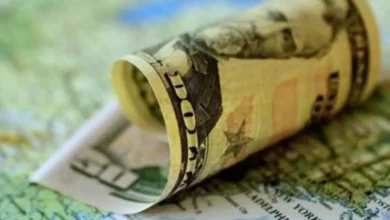The economic situation in Tunisia hinders the lead-up to Ramadan
Due to the country’s economic problems, Tunisians are preparing for more muted festivities during the Muslim holy month of Ramadan.

According to vegetable vendor Mohamed Doryi, “you wouldn’t have been able to set foot in the market because it was so crowded” in previous years.
“Today, that’s not the case,” the 69-year-old said, adding that he no longer posts his costs to deter prospective clients.
Typically, Tunisians stockpile significant quantities of food in anticipation of Ramadan, a time when joyful but sometimes expensive feasts with family and friends follow a day of fasting throughout the day.
However, this year is different, with a recession, growing unemployment, and skyrocketing prices that have significantly reduced buying power.
“I’m not in poverty, but I’m at my breaking point. “My pension is insufficient to meet my needs,” 65-year-old Fayka said in the working-class Bab El Fellah market in Tunis.
The retiree continued, requesting that only her first name be used, “This is the first time I’ve bought fruits and vegetables by the piece” as opposed to in bulk.
Political unrest has also plagued Tunisia since President Kais Saied gave himself total authority in July 2021.
The country’s 12 million residents today make up one-third of those living below the poverty line as a result of two years of significant inflation, which averaged 10% annually and quadrupled the price of numerous goods.
After a severe drought destroyed agriculture, GDP growth was just 0.4 percent in the previous year, and the nation entered a recession by the end of 2023.
Additionally, the unemployment rate increased from 15.2 percent at the end of 2022 to 16.4 percent at the end of last year.
Tunisia is “experiencing a period of stagflation, which means a decline in growth and a rise in inflation,” according to economist Ridha Chkoundali.
The reason for this, he said, is “the deliberate choice of public authorities to prefer to repay debt, especially external debt”.
The market’s ability to get essential commodities and agricultural supplies, such fertilizer and fodder, was harmed by this.
Because the state is having trouble paying for essential subsidized products like wheat, rice, sugar, and semolina, there are sometimes shortages of these due to a lack of funds in the public treasury, which is exacerbated by the wages of over 650,000 government personnel.
The state is putting pressure on Tunisian banks to fund the debt of the nation, which accounts for 80% of GDP. This puts a strain on the banks’ capacity to lend to the private sector, which further slows down development.
Chkoundali contends that “the choice to break with the IMF” is the cause of a shortage of resources.
The International Monetary Fund had tentatively agreed to grant Tunisia almost $2 billion in October 2022, but Saied subsequently rejected the offer, citing unfeasible reform requirements.
A fifty-year-old lady placed a cautious order for 150 grams of veal ahead of Ramadan at a butcher shop in Tunis.
In a nation where the average monthly wage is 1,000 dinars (about $325), red meat is considered a luxury, costing more than 40 dinars (around $13) per kilogram.
Shouting at the butcher, “My husband recently passed away and I can’t afford to buy more,”
52-year-old Mustapha Ben Salmane told AFP that an increasing number of customers are requesting only a handful of hot merguez sausage or minced beef.
“I am unable to refuse them. People are worn out,” he said.







